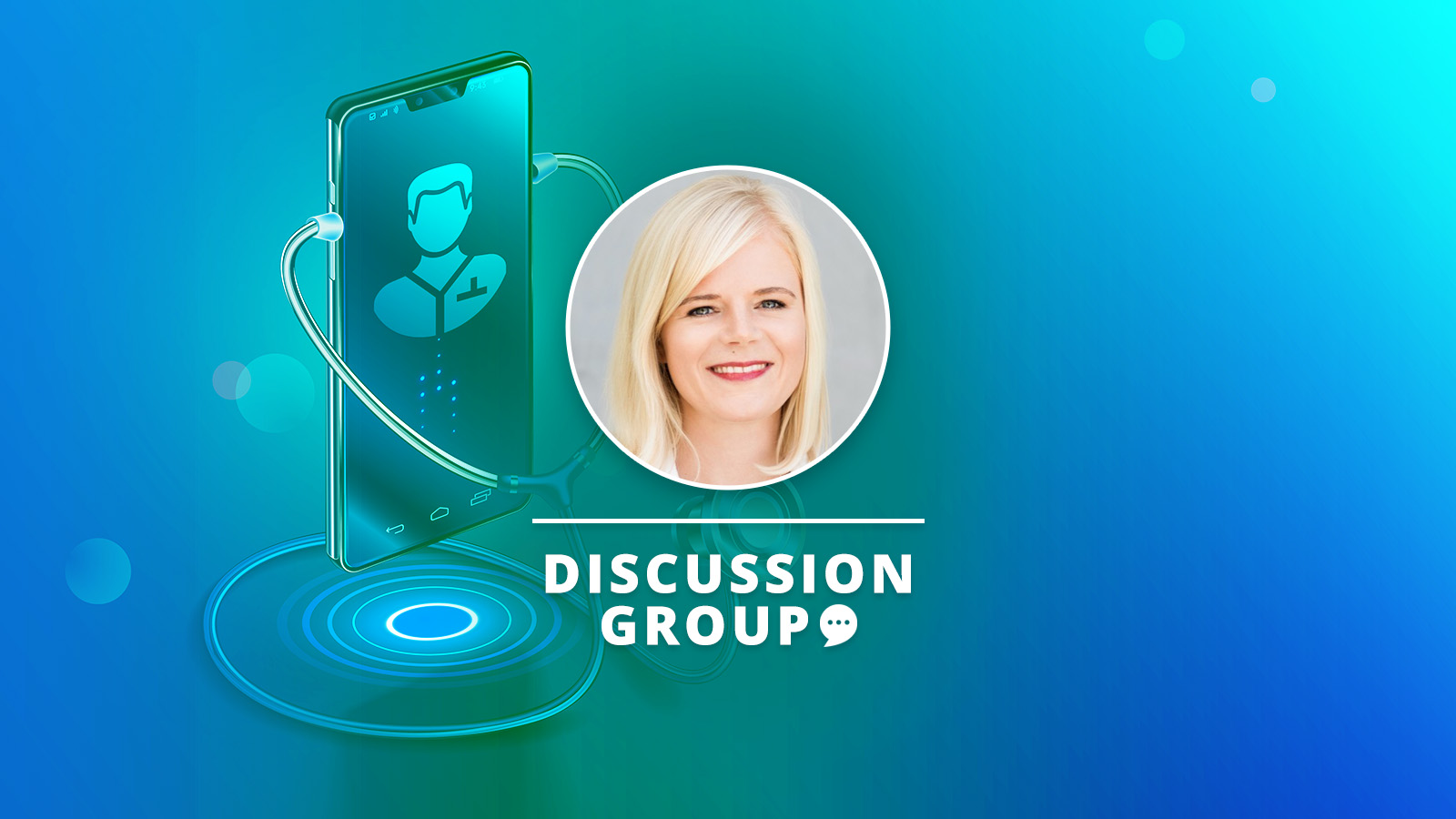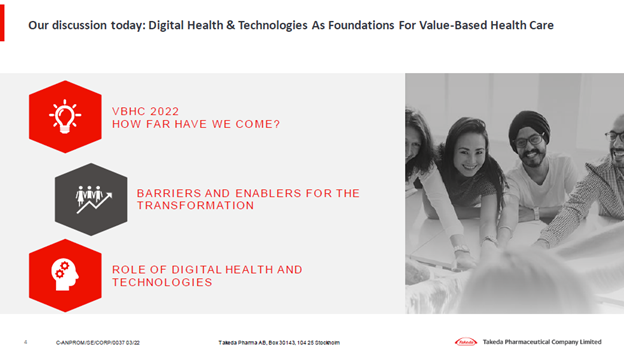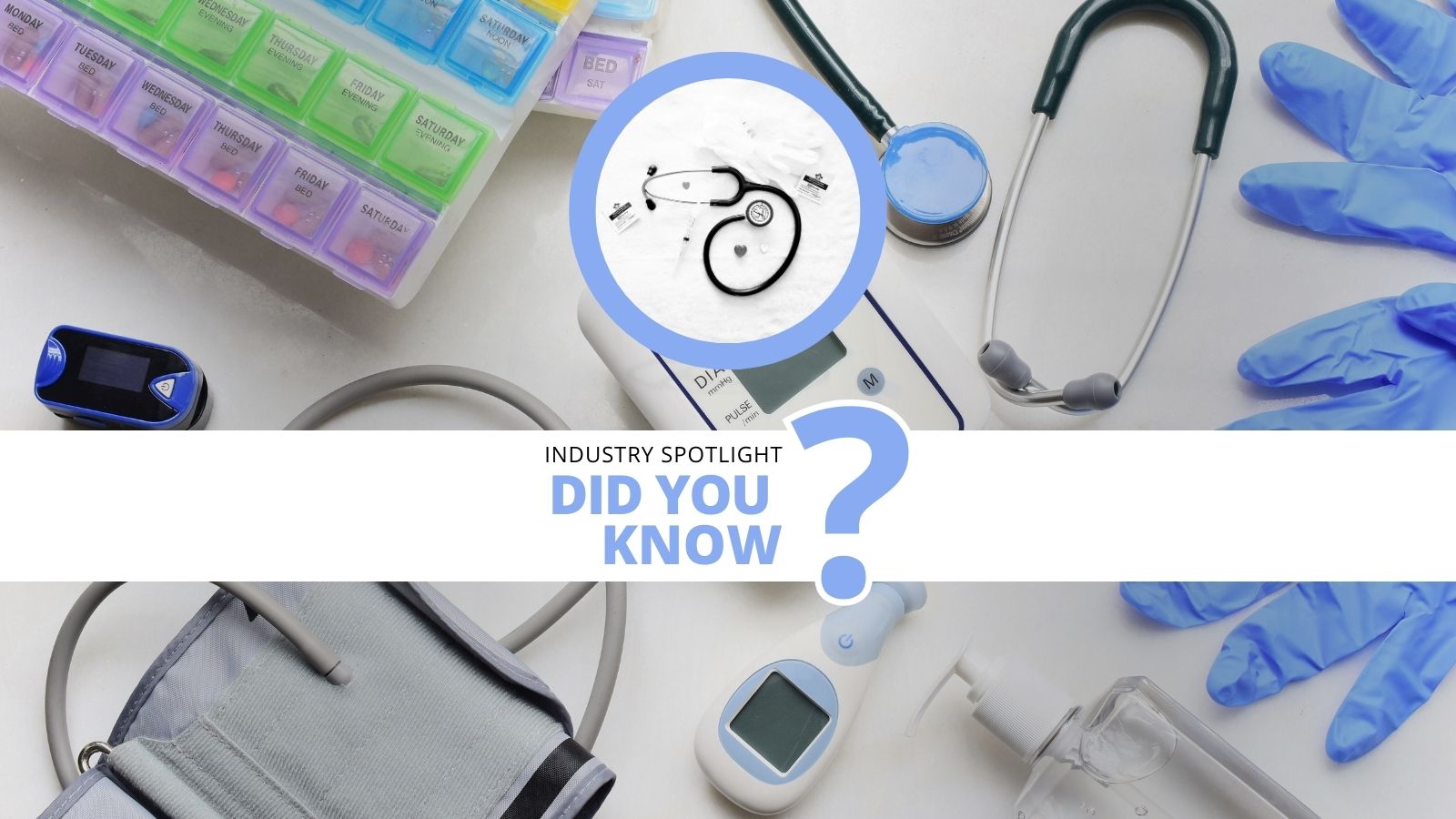Digital Health & Technology: Barriers to Adoption

Our April PharmaTec discussion group brought together key opinion leaders in digital health and technology. The group focused on the application and challenges of utilizing data gathered from digital health technology in a global context.
This month’s group was led by Silvia Bäckström, Head of the Centre of Excellence for Innovation & Evidence Generation at Takeda. Silvia has over 12 years of experience creating innovative and value-based partnerships. She has held a wide range of roles in the industry, working with stakeholders in local, regional and HQ across Europe as well as in consultancy and public service. Her expertise ranges from digital, data and technology driven innovation, commercial operations, corporate integration, access, public affairs and legal.
Silvia introduced the group with an overview of how the industry focus has changed in recent years, stating that “Today there is broad consent that value-based healthcare enables healthcare systems to become more sustainable, cohesive, and resilient. In the past there was a huge emphasize on volume at least from an industry perspective. Over the years we have seen a shift towards value creation in terms of improved patient outcomes while optimizing costs. Going forward, this evolves even further in terms of shared value with improved healthcare system outcomes.”

Data Flow and Protection
“Is it ethical to do research on patients to find new medicines, and then not use the data?”
The discussion began in earnest with an exchange on the difficulties and limits of data sharing. Healthcare is a global field; however, data protection and regulations vary between countries and even between regions. When asked what needs to change, one attendee answered by saying, “I don't think we have a straightforward answer. In the oncology space, there is increasing involvement with commercial partners because of the nature of new therapies. They’re costly to develop much of the research utilizes companion diagnostics. When it comes to data flows, we don't have a clarity on what is allowed, what is not allowed it. if I take the example of digital pathology, some of the platforms have been AWS based platforms. Some countries, for example, the UK, have gotten leverage on those companies and have servers based here in a limited fashion. But when you expand that to international trials it becomes more difficult. I'm working with rare tumors. If you want to build cohorts of patients, which are sizable to make any statistical inference from them, one needs to have access, not just within the UK, but outside of that region, as well.”
An industry representative agreed, lamenting the need for repeated experiments due to non-shareable data. He asked whether it is “ethical to do research on patients to find new medicines, and then not use the data? There's so much repetition and over treatment of patients, or multiple studies doing almost the same thing, and it doesn't seem very ethical that we do that.”
Silvia neatly summarized this part of the discussion by saying “what I’m hearing is that there are a lot of barriers related to access to data, to interoperability of data and the exchange of data, which matches our experience, I think we have come quite far in different therapeutic areas with different stakeholders, but it's always use cases, it's always pilots. We are proud when we can implement them into the healthcare systems such as utilizing AI and machine learning technology to predict and prevent diseases, or even actually accelerate diagnosis. But our successes are related to specific therapeutic areas, specific countries, or regions. There's seldom large scale and systemic implementation, despite the huge interest.”
Fragmentation Challenges: Moving Towards an Integrated Platform?
“You do not need 50 different apps for diabetics, why not use one platform that is so good that everybody can use it?
Expanding on the theme of larger-scale projects and integration, a participant introduced the challenge of fragmentation. He explains that “one of the biggest mistakes that I see in the industry is the desire to brand everything. If we look at GPs (general practitioners), they should have all the apps for diabetes, hypertension, heart disease and so on. The problem is that overall, they would need over 200 different apps from various companies. You do not need 50 different apps for diabetics, why not use one platform that is so good that everybody can use it? That's the way forward and I believe the tech companies are already waiting to do exactly that. And this is what I would encourage putting patients in the driver's seat in the future, and they will determine what they need.”
The idea of combining multiple applications and platforms for disease areas into a single, interoperable, and user-friendly experience is appealing to many people, both patients and innovators in the pharmaceutical industry. Silvia argues that integration could even be pushed beyond this. She explains that “I would even go one step further, not just an app that is just for specific therapeutic areas, but a platform that covers multiple therapeutic areas and can be adapted based on the needs of different healthcare systems while utilizing platforms that are already in use. New stakeholders would be able to produce additional features. We, as an industry, need to become better in collaborating and utilizing what's already out there to really integrate into the healthcare system. Because in the end, what is the purpose of many years of research and collaboration when we do not get beyond the pilot stage?
Digital Health: Regulatory & Language Barriers
“Technically a lot of things are possible, but the governance of such decisions is very unclear.”
The idea of a large-scale integrated platform is a popular idea but making it a reality will be challenging. One of the most overlooked barriers is language. An attendee familiar with European systems explains that “We can use AI and machine learning for text reading and then extraction, but it is not perfect. For example, some wording in Norwegian and Danish are the same, even the pronunciation might be the same, but they are written differently. The machine learning that we are using, it needs to be altered for language variation, such as this simple example.”
In addition to language, there are regulatory barriers. Creating a globally integrated platform would need to accommodate the differences in approved medicine across multiple regulatory agencies. This fragmented approach also applies to healthcare systems. An attendee expands on this topic, clarifying that “there are also challenges with the number of different electronic healthcare providers. Denmark has five, but in Sweden, you have as many providers as you have regions. So even if it's possible to technically integrate with all those different systems and beyond that, I think it also raises the question of who is the decision body? Technically a lot of things are possible, but the governance of such decisions is very unclear.”
Final Thoughts & Conclusion
At Oxford Global, we could not be more pleased with the turnout and feedback from this discussion. This meeting provided the perfect setting for exchanging ideas, sharing innovations, and discussing the ever-evolving digital health and technology landscape.






